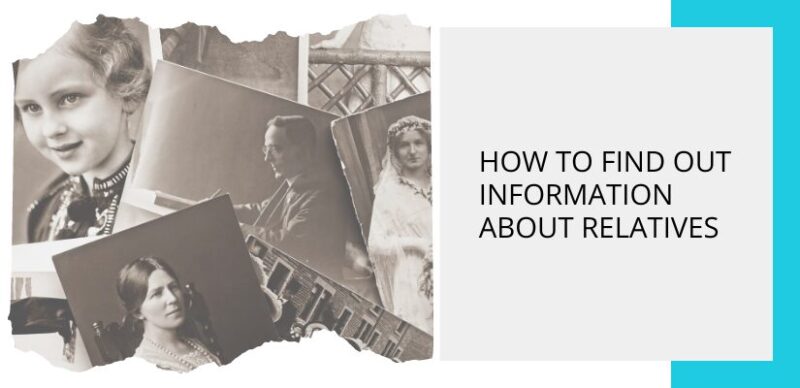
How to find out information about relatives
For those of you who are blessed with living elderly




Ever wondered if your family held a fortune, forgotten by time?
Lost bank accounts or forgotten financial products. According to statistics, each 6th person has unclaimed patrimony left behind by their ancestors.
WIOLP is the only platform that allows you to find your lost patrimony and connect you with the financial institutions that hold it so you can claim it.
WIOLP is the only platform that allows you to find your lost patrimony and connect you with the financial institutions that hold it so you can claim it.
According to statistics, each 6th person has unclaimed patrimony
left behind by their ancestors but is unaware of it.
According to statistics, each 6th person has unclaimed patrimony left behind by their ancestors but is unaware of it.
Imagine discovering the lost patrimony of your ancestors. It could be an amount that changes your life and financial future.
Imagine the possibilities: a dream vacation, a debt-free future, buying a new house, or even the start of a study for your children.
WIOLP is the only platform that allows you to find your lost patrimony and connect you with the financial institutions that hold it so you can claim it.
Don’t let your family’s patrimony slip away. Dormant accounts expire, and valuable information can be lost forever.
Don’t waste time and claim today what’s rightfully yours.
Lorem ipsum dolor sit amet, consectetur adipiscing elit. Ut elit tellus, luctus nec ullamcorper mattis, pulvinar dapibus leo.
Lorem ipsum dolor sit amet, consectetur adipiscing elit. Ut elit tellus, luctus nec ullamcorper mattis, pulvinar dapibus leo.

In the registration records, including registration documents, often contain discrepancies in name spellings due to factors like:
It’s not uncommon for a single individual to have multiple recorded names. Examples include: Johannes/Janos/Jan/Joannes, or e.g. Rakoczi/Rakoczy/Rakocy, or e.g. Forgach/Forgacs/Forgac, or e.g. Raphanides/Raffanidesz/Rafanides. Additionally, second names like Anna Maria or Anna Carolina, or e.g. Yves Edgar might be present.
These variations stem from the limitations of the classical Latin alphabet in representing non-Latin sounds during the Middle Ages. Solutions like “ph = f,” “ie = í,” “eu = oj,” and “gy = ď” were used, further contributing to diverse spellings.
Searching Tips:
When researching historical records, be prepared to encounter various name variations. To maximize your search success, we recommend:
By following these tips, you’ll increase your chances of finding relevant information about your ancestors despite the potential variations in their names.
By considering these variations and searching for all possibilities, you significantly increase your chances of uncovering hidden accounts under a slightly different name.
If you are missing additional information about your ancestors, click on the link of our partners, e.g. MyHeritage or FamilySearch, where you can search for more information about your ancestors and then search again on our platform.
If you don’t find a match yet, it may be because you need to try other first and last name combinations, expand your search to include the names of other ancestors, or their account has not yet reached us. As our database changes due to new accounts entering it and some leaving due to expiration, it is important to keep searching.
If you find a match, click on the “Select” button and you will receive a contact for the relevant financial institution in your email, which you will contact and then communicate with. In order to identify you as an heir, the financial institution may demand from you e.g. registry records, death certificates, etc. You can get these from e.g. MyHeritage or FamilySearch.

Reasons for which people left their homes were different. Ones tried to run away from hunger, cholera, and poverty, while others tried to run away due to a lack of political or religious freedom. Some of them just wanted some adventure or look for opportunities to get rich quickly and easily in a new country. When they save some money, they send it to their birth country.

Practically, each adult can open an account in a financial institution. However, banks reserve their right to refuse clients. A bank can refuse to open an account to a so-called “politically exposed person“ whom a bank assumes could risk its reputation if such a person became their client. Therefore, these people open accounts in different countries which after they died were not included in their inheritance.

Great political and social events inspired many people to make great decisions. Many people traveled to America, Asia, or Africa but also such migration was high within Europe, too. Stories about rich agricultural countries in Oregon or gold in California and Alaska made many people become pioneers who search better life. Some of them were not so lucky. They did not come back home and left their money in bank accounts.

Accounts in banks could also be opened due to the advantage of a particular currency with an idea to invest in such currency at a certain time.

For those of you who are blessed with living elderly


Lost inheritance is caused by loss of contact with an